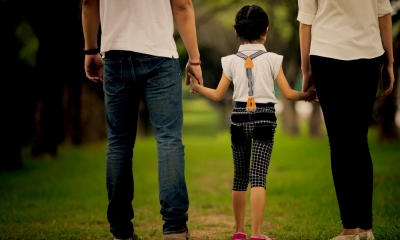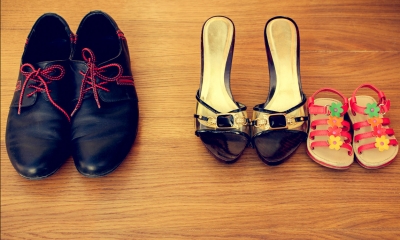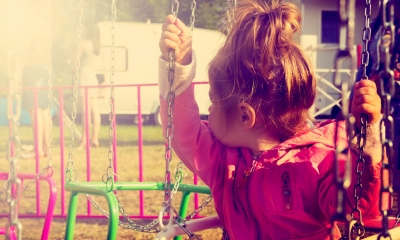
Divorce involving children is a painful and often messy process. Disputes can quickly escalate and the divorce process can become bitter and acrimonious. Despite this, parents must try to put aside their disagreements and put the needs of the children first.
The right approach to divorce and children
As far as possible, you should make arrangements for the children between yourselves. It is in the children's best interests if their parents can agree on what is best for the children. Using children as a weapon during divorce is only likely to increase the emotional upset and costs for everyone involved.
Ideally, you will work towards an arrangement where both parents continue to be involved with the children. Unless there are exceptional circumstances, both parents will continue to have parental responsibility and the right to have a say in major decisions involving their children.
You may find family mediation helpful or want to use counselling services to help children through a very difficult time. Try to reassure your children, explain what is happening and listen to their concerns. Resist the temptation to criticise the other parent or ask your children to take sides.
If you or your children are at risk from domestic violence or abuse, you should get help as soon as possible.
 How do I get divorced?
How do I get divorced?
Helping you take your next steps, from the UK's largest specialist family law firm (rated ‘Excellent’ by 94% of customers on Trustpilot).
Negotiating agreement
Negotiating arrangements for children is separate to divorce proceedings. It is also separate from financial negotiation between the two parents, although arrangements made for children may have a practical impact (for example, if the parent the children live with retains the family home).
Even if you cannot agree and instead go to court, you will be asked to attend a mediation information and assessment meeting (MIAM) to see if mediation could help you reach an agreement between yourselves. The court will be reluctant to impose a solution unless there is no other choice.
Divorce and children: key decisions
When negotiating the arrangements for your children, you should focus on:
- establishing where they will live;
- arranging what contact the 'non-resident' parent will have;
- ensuring the children are provided for financially.
These arrangements should include any adopted children or step-children who are part of the family. You should also think about other family members who are interested in the children, such as grandparents.
Typically, the children will continue to live with the parent who has been their main carer. But the other parent will normally want to continue to take an active part in the children's lives, including regular contact. If you cannot agree between yourselves, or have problems getting your former partner to live up to an agreement, you can ask the court to make a child arrangements order.
Usually, the non-resident parent will pay child maintenance to help support the children. Again, if possible this should be agreed between the two of you. But if you cannot reach agreement, or if the non-resident parent fails to pay, you can get help from the Child Maintenance Service.
div class="boxout"
Child Maintenance Calculator
Use the child maintenance calculator on the GOV.UK website to get an indication of the amount you can expect to pay or receive in child maintenance payments.
Some parents use this as a guide for agreeing child maintenance between themselves.
Wherever possible, maintaining a constructive relationship with your former spouse - and ensuring that you are both acting in the child's best interests - is the best approach.
Reviewed by Amanda Cuthbert, Stowe Family Law



